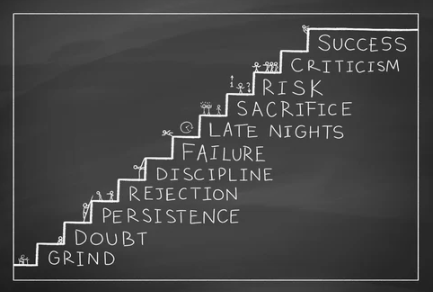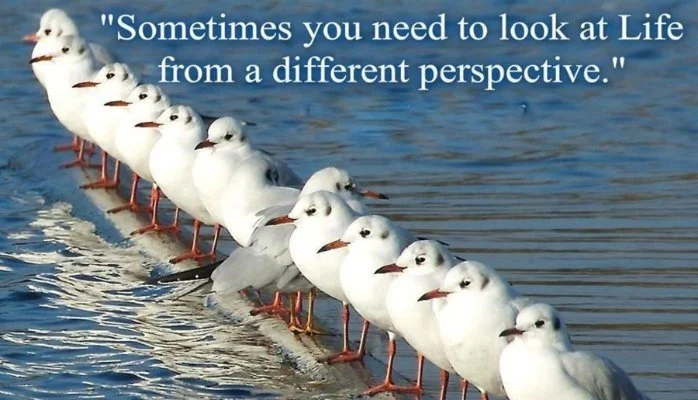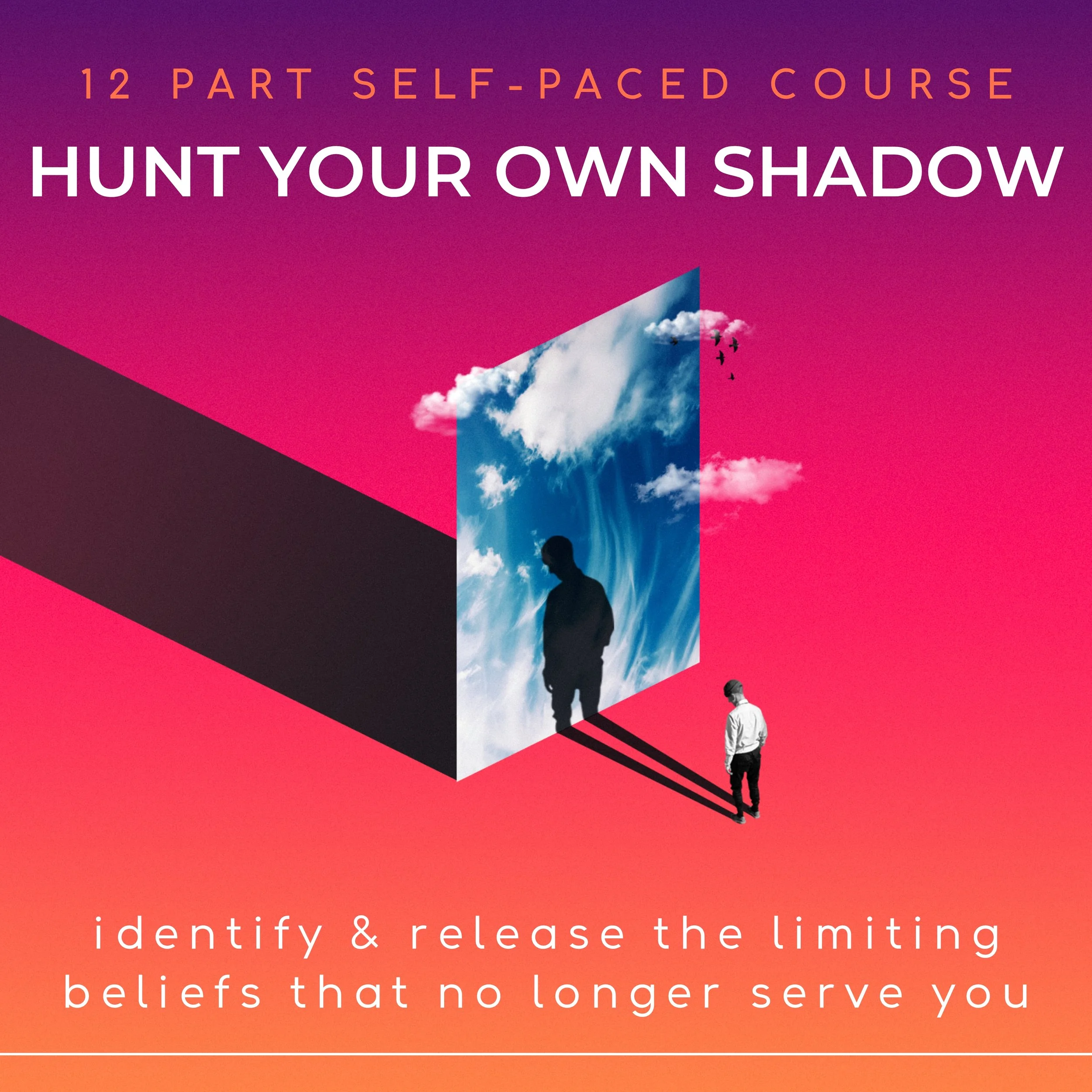You Win Or You Learn
- Ch: 5.3 of How To Get Your Sh!t Together -
“You can’t win unless you learn how to lose.” – Kareem Abdul Jabbar
I lose every day. Each time I step onto the mat at the start of a Brazilian Jiu Jitsu training session, I know that I will soon be ‘tapping out’. Giving the signal that I have been defeated, and effectively admitting to myself, to my opponent, and to everyone watching, that I was bested. ‘You win or you learn’ is an aphorism that we learn to live by, and in most sessions, I lose more than I win. Yet I return, day after day, and plan to continue to do so for the rest of my life. By the end of this chapter I hope to convince you of the reasons why.
First some context. For the uninitiated Brazilian Jiu Jitsu is a grappling based martial art system that emphasises bringing the fight to the ground, controlling your opponent, and then applying a submission hold. The match is over when somebody ‘taps’ either by physically or verbally signaling that they give up due to the risk of physical damage from a joint lock, the potential to pass out from a choke, or due to unbearable pain.
The concept of tapping is an important feature of Brazilian Jiu Jitsu, one that makes training it so addictive. Tapping allows you to train as often and as realistically as you please in relative safety. If you find yourself in a compromised situation, you can always just tap; the match resets and you repeat the process. This constant pressure testing of technique against a fully resisting opponent is the very reason why Brazilian Jiu Jitsu works.
Practitioners learn to apply the techniques onto people who are not only trained to stop the techniques, but are actively trying to counter those techniques and apply their own. This process very quickly reveals what works and what doesn’t work. There is no guesswork at play, if the technique works, it will get the opponent to tap - you win or you learn.
The ‘victor’ learns that a particular technique is viable when applied in a certain way. The real knowledge however is acquired by the person who tapped, because within each loss there is an opportunity to learn; it shows you where your weak points are. Losing triggers a plethora of introspective questions, which can to lead tremendous growth.
“Why did it happen? How could I have performed differently? What do I need to work on? Am I training regularly enough? What was my mindset like going in? Am I asking my coach the right questions? Was it their skill that bested me or a mental slip on my part? Did I underestimate my opponent? How can I stop this from happening again?”
This learning can only take place if the person is willing to risk losing in the first place. They need to approach the loss in the right way – by resisting the urge to take the loss as an insult to the ego, but rather as an opportunity to grow.
How you approach losing, determines how much you learn. This lesson transcends itself into every aspect of life.
When I realised that failure is integral to success, I stopped being as bothered by it. Failure is the best form of education because it highlights exactly where you need to improve. All you need to do is listen to its lessons, and apply them to future endeavours. Lets look at applying the concept of ‘you win or you learn’ into our lives.
“If you try and fail, congratulations. Most people won’t even try.” – Anonymous
Learning From Losing
I spend a lot of my time talking to people about what they want from life. I listen to their goals, dreams, aspirations and desires. What they want to do when they leave school, what career they want to have, how they want to spend their time, the things that they want to create and the success that they want to have.
The common factor that I have noticed is that while everyone wants something, most are not taking any action to turn it into a reality. The reasons for not beginning are always different in their words, but the underlying factor is the same. They are afraid of failure. So afraid in fact, that they would prefer to never even begin. If they could start learning from losing they would in fact stop losing in the first place, aka, you win or you learn!
I have heard countless ideas that could be revolutionary; either to the individual’s personal life, as a potential career move, as a multimillion dollar invention, or even as a form of social change. They know what they want, they have the vision, and they recognise that there is a legitimate opportunity, yet they don’t act.
Some of this inaction is of course logistical. Any major change in life course will involve a lot of friction, the acquisition of new skillsets, as well as the need for capital to sustain the change. Often these barriers are taken not as hurdles to be jumped, but rather as impenetrable road blocks, that stifle all progress. These barriers are the least of their problems, as they can be overcome with flexible thinking combined with persistent effort.
By far, the largest barrier to action is fear. Fear of looking stupid. Fear of failure. Fear of being wrong.
‘What if I make this big change, and it doesn’t work?’
‘What if I end up back where I started … or worse off?’
‘What if people judge me, and don’t see my vision.’
It is almost as if we would prefer our dreams to stay as dreams, rather than risk exposing them to reality. We are so concerned with what people will think of us if we fail, or what it would mean for our self-image, that we never even begin.
If we don’t try, we fail by default. You win or you learn.
As a teacher, I have seen this multiple times on exams; students always leave questions blank. Rather than attempting the question, they will leave the space empty, guaranteeing themselves a zero. This phenomena is so pervasive that it even occurs in multiple choice questions where there is a 20%-25% chance of a correct guess, and no punishment for an incorrect answer. This happens across the board, not contained to any particular subject or school, and not dependent on the backgrounds, culture or ability levels of the students.
Every time I enquired as to why they left it blank, I got some form of the following response, “I didn’t want the examiner to think I was stupid.”
The fact that they were marked anonymously by complete strangers did not do anything to alter this behavior. The students were more concerned with looking stupid, than with potentially winning. By not trying, they guaranteed that they received a lower mark on that exam. By not trying, they gave up any chance to receive feedback on their current performance. They would prefer to save face, than risk judgement.
I will say it again, because it is so vitally important. If you never try, you fail anyway. So why not derive some learning from losing?
Reading this, you are left with a choice. Do you stay where you currently are in life, and continue to do what you always do, getting the results that you always get, or do you risk failure? I can’t answer that question for you. However, what I do know is that if you are not happy with your current station in life, you need to change something. Unless you do, your life will remain the same.
Failure is a part of life, as such, learning how to deal with it is imperative.
How To Deal With The Fear Of Failure
For me, the key to overcoming the fear of failure is to realize that if you don't attempt it, you have already failed.
Your book might suck, your music might be terrible, you may come last in the competition, your business may die, and your clothing range may be laughed at. But you never know. You may become a best seller, you may chart in the top 100, and perhaps you will win. Regardless, you win or you learn.
“Successful people don’t fear failure, but understand that it’s necessary to learn and grow from.”
– Robert Kiyosaki
From there, you need to address the fear itself. Ask yourself, “What exactly am I afraid of?” While it will be different for everyone, most likely it is fear of embarrassment or a cut to the ego. If you try and fail, you have 'proven' to yourself that you are no good. Effectively, proving that your fears of inadequacy are justified. This can be very hard to handle. Instead, if you don't try, you can at least say to yourself that you are great. Since you have never tested your abilities, you can continue living with that delusional belief in yourself.
Risking failure really means risking self-belief.
The problem with this approach is that you are living in delusion. When you risk failure, you are gaining insight into your true abilities. You get to see who you really are. Any exposure of weakness, or deficiency that is presented can then be addressed and overcome - now that you know what you are looking for!
If you want to overcome the fear of failure, remember that you either win or you learn. Every failure is an opportunity to learn. Don't squander that opportunity.
TAKE ACTION
Take up a hobby that has a competitive aspect to it. It doesn’t matter what field it is, as long as there is a clear winner and a clear loser at the end.
Treat each practice session like they matter (they do), go beyond the lessons and self-study by reading topical books and watching instructional videos. Train yourself to win. When you feel comfortable, or within the first six months (whichever comes first), compete.
The key to this exercise is that when you do compete, play to win. Give it your best shot, so that when it is over, you will be able to say that you gave everything that you had to give on the day.
If you win in the competition, compete again, this time in a higher division with harder competition. Keep competing until you lose.
When you lose, look over your performance and analyse the loss. Ask yourself the following questions:
- What can I improve upon?
- What was the cause of my loss?
- If I was to prepare for this competition again, how would I do it differently?
Repeat this process and compete again. This time altering your practice and performance based on what you learnt from your prior loss. Take note of the difference in your mental state going into the competition, during, and after it. Feel the new level of confidence, and the lowering of your nerves.
The key take away from this section is to recognise that losing has helped you to improve. Just as it has in your hobby, losing will help you to improve in your life.
…
One of the most expensive failures of my life was starting a remedial massage business with my wife. We researched the regulatory process of starting a business, budgeted, planned extensively and had access to a bank of initial starting capital.
The business was slowly growing, and we were quickly breaking even and occasionally making a profit. Then we fell pregnant. We had been trying for a baby for a while and were not certain if and when it would happen. This was great news of course, but from a business standpoint the timing was terrible. We were forced to hire employees earlier than we had planned, or could reasonably afford.
As with most small businesses, the owner-operator cares far more than the typical employee ever will. Transitioning the clientele over to a new practitioner didn’t go as smoothly as we had hoped. Once the baby was born, my wife could no longer work in the business, and her time (and importantly her thoughts) were primarily focused in baby mode. We ended up getting out of the business at a substantial financial loss, in order to avoid a potential catastrophic loss.
However, it wasn’t all bad. We both learnt so much from the experience, both about the business world and importantly about ourselves. This knowledge is so valuable that we would have paid far more than the amount we lost to learn it.
We failed with that business, but by learning from our mistakes, we will succeed with our next venture.
“I failed over and over, and that is why I succeed” – Michael Jordan
Frequently Asked Questions
Q) I cannot afford to fail. I have to support my family, and risking that on a new venture could put their livelihoods at risk.
A) Be practical. Of course, you need to ensure that your bases are covered and that your actions won’t detrimentally impact your family.
It is important to realise that your concern will be in maintaining their current lifestyle, rather than providing them with the necessities to survive. In chapter 4.3 ‘Get Your Finances In Order’ I discuss ways to lower your costs, and in chapter 5.2 ‘Live By Your Values,’ I discuss the importance of determining what truly matters to you.
With these tools it may be possible to determine the difference between what you actually need, with what you want, and what you have gotten used to. It could be that you are using concern for your family as a cover to justify your fear of failure.
It may be possible to keep food on the table, as well as risk failure. Just make sure that you have an exit strategy in place. A line that when crossed, triggers you to stop, and ensures that you are still functional.
Q) I keep failing. It feels like every time that I try, I fail.
A) What an amazing opportunity for growth, you must be learning a lot!
Are you taking notes, contemplating what happened, and introspecting on why you failed? Have you looked into coaching, mentorship or education to fill those gaps? Have you considered changing something to give yourself a better starting point? Perhaps you have an assumption that is ungrounded in reality that needs to be addressed or altered that you are not able to see. Are you really losing that much, or does it just feel like you are losing that much?
The simple truth is that if you take action to learn from your mistakes, eventually you will have success. Over a long enough time period, if you keep learning and adjusting, you will become a winner.
Resources
The War Of Art, Steven Pressfield
Summary
Recognise that if you want to be successful, you have to try. When you try, you will fail. Learn from those failures, make improvements and try again.
Read more:
It Is Never The Right Time So Stop Stalling & Do It Now
Done Is Better Than Perfect
Read another chapter from How To Get Your Sh!t Together
Out now: eBook, Paperback & Audible
Your shadow is the gateway to a more authentic you.
This course is your guide to profound inner work. Through powerful insights, guided prompts, and proven techniques, you'll navigate your shadow, heal unresolved wounds, and reintegrate the parts of yourself you’ve long ignored.
What’s Inside:
12 x Guided Meditation & Contemplations
12 x Introspective Prompts
12 x Expansion Challenges
A comprehensive instructional PDF guidebook
Unlimited email coaching for ongoing support and personalized guidance
Explore full course details and watch intro video here!
This isn’t just about healing, it’s about meeting your shadow head-on, embracing every part of yourself, and reclaiming your full power.
Are you ready to face what’s been hidden and step into your truth?



